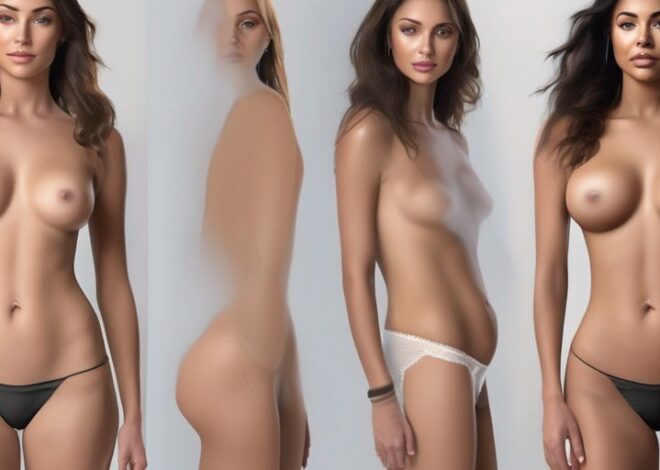
The Rise of Free Undressing AI: Ethical Implications and Privacy Concerns
The emergence of Free Undressing AI, particularly platforms like Nudify.Online, has sparked a significant debate around the ethical implications and privacy concerns associated with such technologies. This article explores the various dimensions of this controversial technology, from its functioning and societal impact to the legal challenges it presents.
Key Takeaways
- Free Undressing AI like Nudify.Online uses advanced algorithms to digitally remove clothing from images, raising significant privacy and ethical concerns.
- The lack of explicit consent in using such technologies blurs ethical boundaries and poses questions about the violation of personal rights.
- There is a potential for misuse of Undressing AI, which could lead to harassment or blackmail, highlighting the need for stringent data security measures.
- Public reaction varies widely, with some viewing these technologies as a violation of social norms, while others see it as an advancement in digital freedom.
- Regulatory frameworks lag behind technological advancements, necessitating updates to legislation to protect individuals from potential abuses of AI capabilities.
Understanding Free Undressing AI

What is Free Undressing AI?
Free Undressing AI refers to a category of artificial intelligence applications that digitally remove clothing from images of individuals, often without their consent. This technology has sparked significant debate regarding its ethical use and implications.
How Does Nudify.Online Work?
Nudify.Online operates by utilizing sophisticated AI algorithms to simulate the appearance of individuals without clothes. This process does not reveal the actual body of the person but generates a plausible approximation based on the visible clothing outlines.
The Technology Behind Clothes-Removing AI
The core technology involves machine learning models that have been trained on vast datasets of clothed and unclothed images. These models learn to predict what the body might look like underneath the clothes, which is then rendered to create the final image.
Ethical Dilemmas of Undressing AI

Consent and AI: A Blurred Line
The use of Nudify.Online raises significant ethical concerns, particularly regarding consent. The absence of explicit consent from individuals whose images are processed by these AI tools poses a fundamental ethical challenge. This blurring of consent boundaries could potentially lead to exploitation and misuse, highlighting the need for clear guidelines and ethical standards in the deployment of such technologies.
The Impact on Social Norms
The advent of clothes-removing AI technologies like Nudify.Online is reshaping social norms and expectations about privacy and body autonomy. This shift could lead to a decrease in the societal value placed on privacy, as the public becomes more accustomed to the idea of digital exposure without consent.
The normalization of such technologies might desensitize people to privacy invasions, making it crucial to address these changes proactively through education and public discourse.
Legal Implications and Rights
The legal landscape is struggling to keep pace with the rapid development of AI technologies that can undress images. There are numerous legal implications, including the violation of privacy rights and the potential for harassment. The need for updated legislation that specifically addresses the capabilities and limitations of undressing AI is evident, as current laws may not fully cover the new issues posed by these technologies.
Privacy Concerns with AI-Based Undressing

Potential for Misuse
The potential for misuse of undressing AI technologies like Nudify.Online is significant. Unauthorized use of personal images can lead to severe privacy violations and emotional distress. The ease of access to such technologies increases the risk of their use in harmful contexts, such as cyberbullying or harassment.
Data Security and User Anonymity
Ensuring data security and maintaining user anonymity are critical challenges. The storage and processing of images involve sensitive personal data, which must be protected against unauthorized access and breaches. Measures such as encryption and secure data handling protocols are essential to safeguard user privacy.
Regulating Access to Undressing AI
The regulation of access to undressing AI technologies is crucial to prevent abuse. Legal frameworks need to be established to control the distribution and use of these technologies. Proposals for regulation might include licensing requirements, age verification systems, and clear guidelines on lawful uses.
Public Reaction and Societal Impact

Media Coverage and Public Opinion
The media has played a significant role in shaping public opinion on free undressing AI. Coverage ranges from ethical debates to privacy concerns, often highlighting the potential for misuse of such technologies. Public opinion is deeply divided, with some advocating for strict regulations, while others see it as a harmless advancement in AI technology.
Cultural Responses to AI Undressing
Different cultures have responded variably to the advent of undressing AI. In some regions, it has sparked outrage and calls for immediate bans, while in others, it has been met with curiosity and less resistance. This disparity underscores the cultural dimensions of technology acceptance and the need for culturally sensitive approaches in technology deployment.
Shifts in Privacy Expectations
The introduction of technologies like Nudify.Online has led to significant shifts in privacy expectations. People are increasingly concerned about how their digital images can be manipulated without their consent. This has spurred discussions on the need for more robust digital rights and protections to prevent unauthorized use of personal images.
Technological Advancements and Future Prospects

Improvements in AI Accuracy
The accuracy of clothes-removing AI has seen significant improvements over the years. Recent developments have enhanced the precision of these models, ensuring that the generated images are more realistic and less prone to errors. This progress is crucial for applications that demand high fidelity and detail.
Emerging Technologies in AI
The integration of augmented reality (AR) and virtual reality (VR) with undressing AI is setting a new frontier in the digital world. These technologies promise to create more immersive and interactive experiences, potentially transforming how we perceive digital interaction.
Future Ethical Considerations
As AI technology continues to evolve, so does the complexity of the ethical questions it raises. It is essential to anticipate and address these concerns proactively. Discussions and frameworks around the responsible use of AI must be prioritized to safeguard individual rights and maintain societal norms.
Regulatory Frameworks and Legal Challenges

Existing Laws and Regulations
Current legal frameworks are often outdated and not specifically tailored to address the unique challenges posed by AI technologies like undressing AI. Most countries lack specific legislation that directly addresses the use of such AI, relying instead on general privacy laws and decency statutes.
Proposed Changes in Legislation
There is a growing call for legislative bodies to adapt and evolve to better regulate emerging technologies. Proposed changes often include stricter consent requirements, clearer definitions of digital content rights, and enhanced penalties for misuse.
International Legal Perspectives
Different countries have varying approaches to regulating AI. For instance, the EU is at the forefront with its AI Act, aiming to set a benchmark for AI regulation globally. Comparatively, other regions may have less stringent or no specific laws concerning AI ethics and privacy.
Conclusion
The emergence of free undressing AI technologies like Nudify.Online raises significant ethical and privacy concerns. While the technology showcases impressive advancements in AI capabilities, it also poses serious risks related to consent, privacy invasion, and potential misuse. As these technologies become more accessible, it is crucial for policymakers, technologists, and society to engage in meaningful discussions and establish robust frameworks to ensure that such technologies are used responsibly and ethically. The balance between technological innovation and ethical standards must be carefully managed to protect individual privacy and uphold societal values.
Frequently Asked Questions
What is Free Undressing AI?
Free Undressing AI refers to artificial intelligence technology that can digitally remove clothing from images of individuals, simulating nudity. This technology is often accessible without cost through various online platforms.
How does Nudify.Online work?
Nudify.Online is a web-application that uses advanced clothes-removing AI technology to digitally strip off clothing from images uploaded by users. It leverages the most sophisticated AI algorithms of 2024 to render images with the apparels removed.
What are the ethical dilemmas associated with Undressing AI?
The ethical dilemmas of Undressing AI include issues of consent, as the subjects in the images may not have agreed to be depicted in such a manner. It also raises concerns about the impact on social norms and the potential for harm in terms of privacy and personal dignity.
What are the privacy concerns with AI-based undressing?
Privacy concerns include the potential misuse of the technology to create inappropriate or harmful images without consent. There are also issues related to data security and the anonymity of the users who upload images to these platforms.
How is the public reacting to the rise of Undressing AI?
Public reaction varies widely, with some expressing alarm and concern over privacy and ethical implications, while others may view it as a harmless or entertaining technology. Media coverage and cultural responses also play a significant role in shaping public opinion.
What future prospects exist for Undressing AI technology?
Future prospects for Undressing AI technology include improvements in AI accuracy and the development of new technologies that may further enhance or regulate its capabilities. Ethical considerations will likely continue to evolve alongside these technological advancements.



